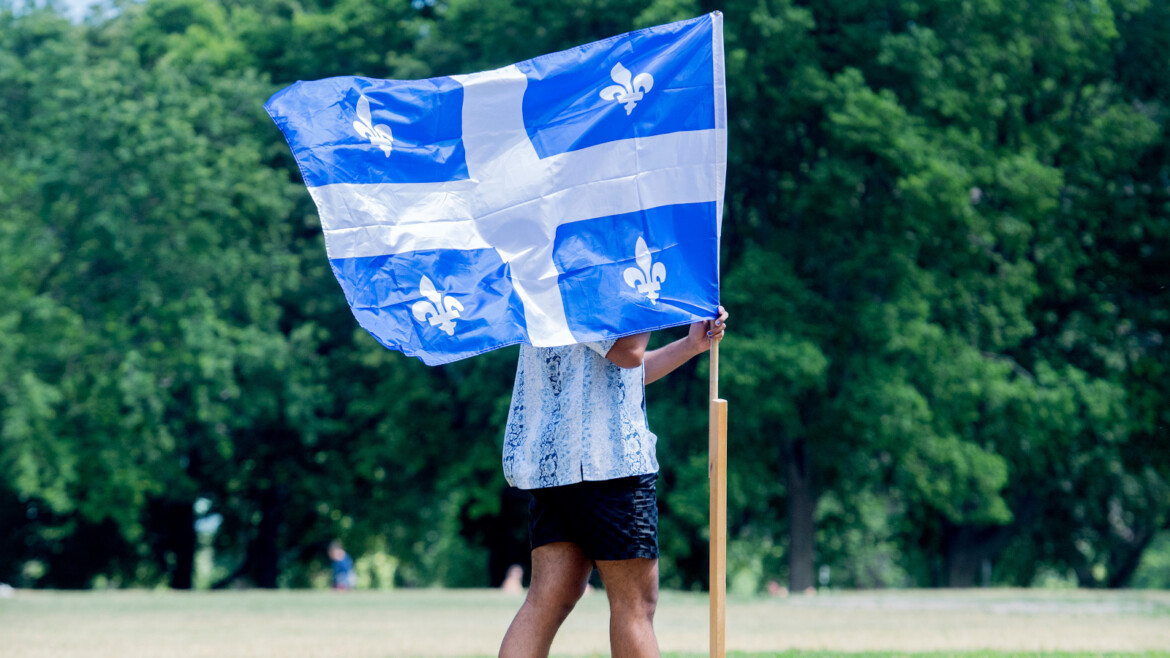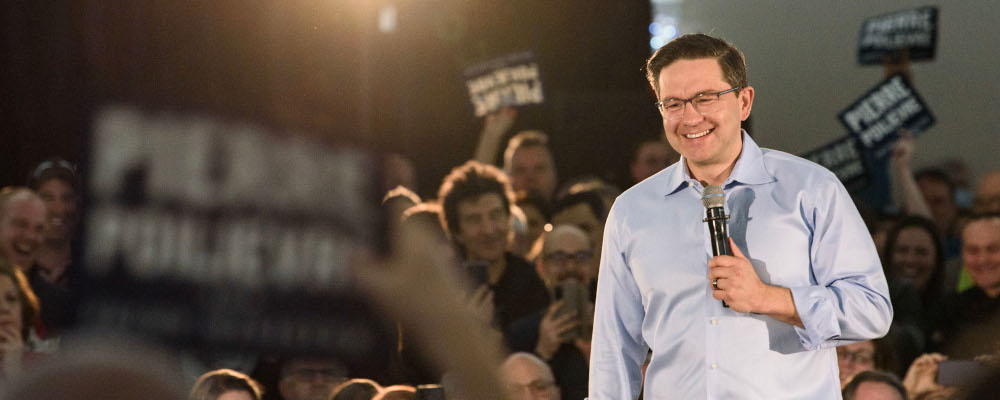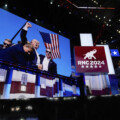The Hub’s editor-at-large Sean Speer recently exchanged with Mathieu Bock-Côté, an influential Francophone conservative thinker and writer, whose commentary (including eight books) about culture, nationalism, and politics reaches large and powerful audiences in Québec and France (and has been translated into Polish, Spanish, Portuguese and Greek, among others).
Their Q&A, which has been translated and edited for clarity, covers several major topics, including the state of Québec nationalism, the compatibility and tensions between Québec cultural conservatism and English Canadian liberal conservatism, and the province’s anti-woke politics.
SEAN SPEER: In an essay about the French riots for the America Conservative magazine last month, you wrote of what you described as the “diversitarian orthodoxy.” I hadn’t seen that language before. What is diveritarianism? How has it manifested itself in Western society?
MATHIEU BOCK-CÔTÉ: I’m talking both about the “diversitarian revelation” and the “diversitarian regime”, one inspiring the other and serving as its ideological foundation.
The diversitarian revelation, which in my view is at the core of the ideological dynamics of the last half-century, maintains that the Western world, until very recently, was characterized by a discriminatory structure (or a series of discriminatory systems) on a large scale, for the exclusive privilege of heterosexual white men, and that it is necessary today to deconstruct all of the institutions and symbolic references unique to our civilization to allow the emancipation of ever more numerous “minorities” in the establishment of an “inclusive” society.

There is something religious in this revelation: there are the “wokes”, who have seen the light, and who are committed to a process of permanent self-criticism (in the case of people from the majority society, this is a public display of conversion to save their soul—and their social position—by becoming allies of the “minorities”, and by taking up the trial of the Western world on their own account), and those who still want to live in the darkness of the old world, that of the West without complexes, and who must be reeducated—or severely sanctioned and banned from society—if they come to the old world’s defence.
The entire history of our civilization must be reinterpreted in this light. The year 1492 becomes a turning point, marking the fall of Europe into the world of imperialism and colonialism, and the states resulting from European expansion, such as Canada, Québec, or the United States, being fundamentally illegitimate. A new original sin can be seen in 1492, as evidenced by the current demonization of Christopher Columbus.
Before there was exclusion; today there is inclusion. Before there was homogeneity; today there is diversity. Before there was the imperialist, conquering, colonialist, racist, xenophobic, sexist, homophobic, transphobic West; from now on, there is the repentant West, finding its greatness in permanent genuflection. Everything must be dissolved: the sexes, cultures, peoples, nations, our civilization.
Massive immigration is presented here as a form of historic benediction because it would deliver us from our own identity. Newcomers—the “other”—are a redeemer. Multiculturalism, based on the reversal of the duty of integration, in that it is no longer up to the immigrant to learn the ways of the host society, but for the host society to bend to the requirements of diversity, then presents itself as the impassable horizon of our time.
We must even go so far as to dissolve the sexes—and we are at this point today—in that male and female would be arbitrary social constructs, to replace them with identity fluidity, gender indeterminacy becoming from this point of view the new identity norm, based on which we will undertake to reconstruct the social imagination. I cannot refrain from thinking that this hypercriticism contains a form of morbid, nihilistic impulse, reflecting the desire for self-annihilation in part of our civilization.
The diversitarian regime thereupon means rebuilding our societies by translating this politically, particularly by reversing all the concepts at the core of the democratic imagination. Popular or parliamentary sovereignty henceforth is spurned as anathema, likened to the tyranny of the majority. Democracy apparently should convert into government by judges, who would be better disposed to give a favourable welcome to the identity demands of minorities, in a process that will also lead to a disaggregation of the political and social body, each “identity” claiming it is subjected to discrimination whenever the majority does not submit to the demand and whims of those who claim to speak in its name.
Freedom of expression is now demonized because it is accused of normalizing hate speech—but it must be recognized that the concept of “hate speech” today is used primarily, and even exclusively, to censor any form of criticism of the moment’s prevailing left-wing ideologies. This is called political correctness and I note that big corporations, particularly in the digital industry, act as its relays.
Society must be subjected to permanent re-education because a return of the repressed traditional attitudes is always feared. Bureaucracy is increasingly intrusive in the name of the EDI (equity, diversity, and inclusion) approach. Moreover—and we’ll return to this—any form of conservative resistance to this civilizational conversion is pathological, like a phobia—in other words, it is psychiatrized. Progressivism used to claim the monopoly of the true, the just and the good: today it also claims the monopoly of mental health. Through this regime, which claims to fulfill the ultimate promises of democratic emancipation, is revealed to be a rebirth of the totalitarian temptation in the heart of modernity.
SEAN SPEER: You’ve gone from being a popular voice in Quebec culture and politics to one in France. Talk about their respective political cultures. What are the key similarities and differences in your opinion?
MATHIEU BOCK-CÔTÉ: Québec, on the Canadian scale, and more broadly, on the North American scale, is experiencing this, even though it is not always aware of it, because ordinary life has its rights and common mortals do not always think on the scale of active citizenship, of a dissident national existence. Since the Conquest, but especially since the Durham Report, and even more so since the constitutional reform of 1982, Quebecers generally have been considered as a superfluous people in this country; at best, they were tolerated, like a vestigial nation bound to vanish over the course of history; at worst, active efforts were made for their disappearance, denying the legitimacy of their national existence and working to deconstruct it. Quebecers consider themselves as promoters on the Canadian scale of a difference deemed to be illegitimate, as if they had to claim permission to exist. On the scale of North America, they are obviously aware they embody a form of collective existence with the American empire. Québec nationalism is that of a small nation in the sense meant by Milan Kundera, a nation aware of its possible disappearance.
France, in its way, is in a somewhat analogous situation—even if this situation is new for it. It is the target of a permanent defamation campaign from the American empire, as was seen again during the recent suburban riots, which the Anglo-Saxon press, and the New York Times in particular, this Pravda of the diversitarian regime, present as decolonial riots against a France that is fundamentally racist. Securalism, which is part of France’s history, is presented as a system of Islamophobic persecution. In other words, French history is also delegitimized by the dominant ideology.
France also places the concept of nation at the core of its collective existence and seeks to resist the logic of social and identity fragmentation of the present day. I won’t say it is achieving this, but it’s trying. From this point of view, France is the opposite of Canada. Still, from this point of view, Québec is closer to France than Canada, as evidenced by its relationship with secularism, conceived both as a means to manage the inherent civilization tensions from massive immigration, to prevent ethnoreligious communitarianism from colonizing the public space, and as a means of reaffirmation of the collective identity of our two peoples.
SEAN SPEER: There are various signs that Québec nationalism and the province’s sense of its own distinctiveness seem to be on the rise. The popularity of you and your writing is one proof point. Do you think that Québec nationalism is growing, and, if so, what do you attribute that to?
MATHIEU BOCK-CÔTÉ: Let’s go back in time. After the referendum defeat of 1995, a heartbreaking defeat in that 61 percent of Francophone Quebecers voted Yes to independence, the springs of Québec nationalism were broken. Defeat is an undoing, and a people does not fail in its fight for independence without paying the price. It begins to doubt itself and may even be tempted for a time by the phantasm of depoliticization, withdrawing exclusively into private joys, so it does not have to assume the collective failure—and this is a true collective failure in that, since the 1960s, Quebecers had invested their collective energies together in the national question, without this leading to anything. They did not obtain either independence or a distinct society, and what’s more, a constitution was imposed on them that changed their status from a founding people to one ethnic community among others in a multicultural Canada—a community that is also accused of engaging in ethnic supremacy when it tries to remind people that it is a nation and to organize politically in this sense, by taking the necessary means, for example, to ensure the National Assembly has precedence over the Supreme Court, particularly by the use of the notwithstanding clause.
It must be added that in the wake of the 1995 referendum, Ottawa and its allies in Québec launched a particularly radical ideological offensive against Québec, accusing it of engaging in regressive, exclusive and even racist ethnic nationalism. This was the time of Plan B, which even led Ottawa to seek to impose its tutelage on the right of the Québec people to self-determination, with Bill C-20 (Clarity Act). A large part of the Québec elites, and particularly the sovereignist elites, were deeply affected by this accusation of racism. They believed they had to reconstruct nationalism in the parameters of multiculturalist ideology, as if this were the new stage of Québec’s modernization. This was called the Trudeauization of Québec nationalism.

The memory, culture and mores of the Francophone historical majority were no longer supposed to be at the core of our collective identity, called on to be refounded exclusively in the cult of progressive values. It was no longer up to the immigrants to integrate into the Francophone historical majority, but it was up to this majority to blend into Québec neo-multiculturism, which our elites called interculturalism. Moreover, maintaining that the Francophone historical majority was the core of the nation was regarded by our progressive elites as a discriminatory discourse. Progressive sovereignism, which believes it found a certain moral purity through its conversion to inclusivism, then contributed to denationalizing the Québec identity.
But, fundamentally, Quebecers were hostile to this identity-gutting operation, which confused openness to others with self-denial. This refusal of multiculturalism was expressed at the time of the reasonable accommodation crisis of 2006–2008. To the extent he was able to appropriate this identity anxiety, François Legault could channel Québec nationalism to his advantage. The province’s rejection of multiculturalism crystallized politically around the fight for secularism, which culminated, after years of debate, in Bill 21, adopted in 2019. This law, which Quebecers themselves consider quite moderate, even compromise legislation, in that the majority of them would have agreed to go farther, contradicts the Canadian regime, and it can be expected that Ottawa and its Supreme Court, one way or another, will invalidate this law, in whole or in part, in the years ahead, which could well trigger a form of Meech Lake 2 in Québec. I mean that the Quebecers, after debating among themselves for years, after managing to agree on a reasonable law, discover that they are not even masters in their own house, even when they allow themselves a very modest form of identity affirmation. The question of independence risks a very clear resurgence at this time.
In short, for the past fifteen years, Québec nationalism has been reborn through the identity question. Added to this, it must be said, is a very keen awareness of the collapse of the French fact in the Greater Montréal area, essentially due to the massive immigration of the past 25 years. The debates around the so-called “Century Initiative” in the past few months have also shown Quebecers that the coming demographic evolution of Canada condemns them to demographic swamping («la noyade»), to repeat René Lévesque’s once famous formula.
Especially when they are presented with a lose-lose situation. Either they increase their immigration thresholds in turn to preserve their political weight in Canada, which will lead to a regression of the weight of the Francophone historical majority in Québec and an erasure of their collective identity—because no matter what is said, and despite Bill 101, immigration here is being anglicized and is anglicizing Québec—or else they refuse to increase the thresholds and are doomed to see their political weight decrease in Canada. One way or another, the trend seems unstoppable: Francophone Quebecers will be less and less numerous where they live, and their weight will regress. In Montréal, they increasingly are living as strangers in their own country. In Laval as well. This fracture corresponds to a partitionist logic that does not speak its name, which assuredly serves the purpose of the Canadian system and the Québec Liberal Party (and the Liberal Party of Canada), which capitalizes on massive immigration to ensure the extension of its pool of voters but is surely contrary to the fundamental interests of Québec.
All this contributes to the rebirth of the national question, even though for now, overall, François Legault is settling for a rhetorical nationalism, without accompanying this with a true nationalist policy.
SEAN SPEER: One concept that is a bit foreign to English Canadians in general and Canadian conservatives in particular is the idea of cultural conservatism. How would you define cultural conservatism and how does it differ from social conservatism or classical liberalism?
MATHIEU BOCK-CÔTÉ: Social conservatism is essentially focused on the question of morals, in relation to the profound metamorphosis of the Western family structure of the past 60 years, and is often accompanied, although not systematically, by a religious dimension that pushes it onto the scale of moral conservatism.
Conservatism conceived as classical liberalism opposes, at least theoretically, the deployment of the social state—or at least, its exaggerated extension—and would prefer a social organization regulated by the market or civil society. It is often accompanied, but not all the time, by a form of patriotism, affirmed more or less depending on the country.
Cultural conservatism, as it exists in Québec, without bearing this name, first has the mission of ensuring the defence of a people’s national identity, and more fundamentally, the defence of the cultural and civilizational transmission process. It pays special attention to the question of the school for this purpose, which too often is diverted from its mission today, to the extent that it is asked less to transmit a civilizational heritage to new generations, and instead is used as an instrument of indoctrination to manufacture a new society, conforming to the diversitarian ideology, the woke religion. Cultural conservatism, in this perspective, stays fairly far away from questions concerning individual or family morality. It stays away from societal questions. It places cultural identity at the core of its political reflection.
More broadly today, the vocation of conservatism is to resist the diversitarian regime, and the anthropological and ideological revolution of which it is the vehicle. The defence of liberal democracy today is inseparable from the defence of the national identity. From this point of view, the history of the resistance of the Eastern European countries in the second half of the 20th century could inspire us.
SEAN SPEER: To the extent that Quebec conservatism is rooted in a more European conception of conservatism rather than Anglo-American liberalism, is it possible to speak of a pan-Canadian conservatism? Or are the two conceptions of conservatism too different to find a common sense of intellectual or political purpose?
MATHIEU BOCK-CÔTÉ: Québec conservatism is first a nationalism, and it is in this spirit that Stephen Harper, with Tom Flanagan and a few others, wanted to believe at one time in the theory of the “three sisters”, making Québec nationalism one of the three pillars of Canadian conservatism. Even though the interpretation is a little forced, a reworking of Robert Stanfield’s “two nations” concept could be seen in this.
Québec nationalism has been reborn through the identity question.
This having been said, I do not believe their marriage is compatible today. Because Anglo-Canadian conservatism, to me, seems detached from any defence of a substantial cultural identity to the extent it does not fit into the Anglo-Canadian reference, but Canadian in the broad sense, and that this reference is now inseparable from multiculturalism and all that accompanies it. Anglo-Canadian conservatism seems more than discreet when it is time to criticize political correctness, multiculturalism, and massive immigration. To tell the truth, the Canadian Right, except on its margins, is more similar to a pallid Left, or to an idling Left, than to what could be called the Right, except on its social and moral fringe, which seems doomed to be marginal. The Canadian Right has consented to the ideological and symbolic hegemony of the Liberal Party of Canada, which has managed to forge this country’s institutions for the past 40 years. As soon as it seeks to free itself from this system, which domesticates it politically and condemns it to impotence, it is accused of turning to the American Right. Then it lies down and hopes again to please the media who have maintained the fiction of Joe Clark-style Progressive Conservatism.
Stephen Harper, I repeat, had sought to free Canadian conservatism from these trends. But his successors, in general, have fallen back into it. Pierre Poilièvre intends to resume this struggle, but he seems to leave aside certain fundamental themes, which I discussed previously, that would allow him to engage in a real ideological confrontation with the Liberal Party of Canada and everything it represents.
SEAN SPEER: Quebec society seems more resistant to the trends of identity politics or so-called “wokeism” than English Canada. What do you attribute that to? How does it relate to your past observations about Québec’s cultural identity and its sense of nationalism?
MATHIEU BOCK-CÔTÉ: The resistance to wokeism comes, I believe, from the “common sense conservatism” at the heart of Québec political culture, but especially from Québec nationalism. This is what gives it a certain vigour, and a keen awareness that we are not Americans and that our history is not the same as that of our neighbours to the south. When the “wokes” attempt to apply the history of American slavery to Québec, Quebecers are more than perplexed. The racial obsession that comes to us from the United States is fundamentally incompatible with the Québec identity matrix, which does not think of the world in terms of skin colour, but of culture and nation. Wokeism also contains a form of ideological and moral Puritanism that seems fairly far from Québec’s fundamental cultural matrix, and which may be more characteristic of Protestant societies.
This having been said, and excuse me from returning to it, Anglo-Canadian conservatism is a victim of the historical victory of Trudeauism. It is inhibited and even neutralized. Post-1982 Canada is no longer a historical country (perhaps it could have been if it had been able to make a pact between the founding peoples, but it is not too easy to see how this ideal could be reactivated), but an ideological country, founded on the diversitarian utopia, which also claims to teach the entire world a lesson by presenting itself as the next stage of human history. In fact, the Canadian elites treat their country as an ideological laboratory of globalized multiculturalism, deemed to be born from an unprecedented model of society, and then exportable around the world. In this context, conservatism is residual, or called on to take the form of an accounting ideology, unless it is formulated in a quasi-libertarian logic. Certainly, Stephen Harper had sought to make Canadian conservatism a Western conservatism (while folklorically reactivating its British heritage), and maybe this is the vocation of Anglo-Canadian conservatism, to the extent this reference is elusive for itself, and in the extent that I do not see the formal rebirth tomorrow in Canada of an Anglo-Canadian national consciousness.
This having been said, the struggle against wokeism, against racialism, against political correctness, against censorship, against government by judges, is worthwhile in itself. It remains to be seen in what universe English Canada’s conservatives will manage to inscribe this struggle, whether they can reactivate the memory of English Canada, or whether they can redefine the significance of what it means to be Canadian, as the Liberal Party of Canada has managed to do since 1982.
Recommended for You

Ginny Roth: J.D. Vance, Pierre Poilievre, and how they slice their economic pie

David Polansky: As President Biden leaves the race, will the Democratic Party hodgepodge hold?

RCMP spending to protect MPs may have risen 112% since 2018, as Canadian politicians face greater rise in threats

Adam Zivo: No Dr. Bonnie Henry, drug prohibition is not ‘white supremacy’









